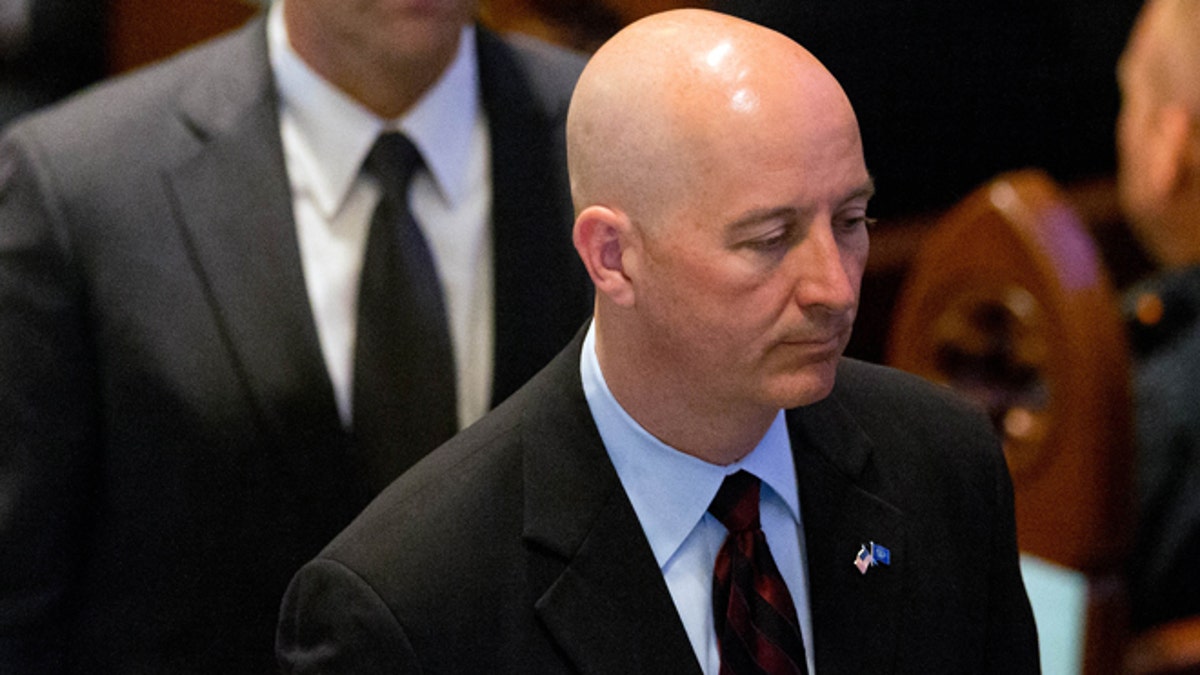
Nebraska Gov. Pete Ricketts at the funeral service for Omaha police detective Kerrie Orozco Tuesday, May 26, 2015. The state senate overrode his veto, allowing immigrants who arrived here as kids drivers' license. (Matt Miller/The World-Herald via AP, Pool)
Nebraska lawmakers on Thursday overrode Gov. Pete Rickett’s veto of legislation allowing immigrants brought to the country illegally as children to get driver’s licenses – ending that state’s status as the only one to deny driving privileges to so-called "Dreamers."
The state senate voted 34-10 to overturn the veto of Legislative Bill 623.
Originally the bill passed the senate by a 34-9 margin, which was four more votes than were needed to override the veto. The bill gained the support of a number of Nebraska's largest businesses and agriculture groups, as well as Omaha Mayor Jean Stothert, a prominent Republican.
Before the bill was passed, Gov. Ricketts, a Republican, told the World-Herald of Omaha that he didn’t “believe in giving benefits to people who came here illegally.”
In the lead-up to the vote, the Greater Omaha Chamber of Commerce, the Nebraska Chamber of Commerce and Industry and the Lincoln Chamber of Commerce threw their support behind the measure.
“I don’t expect to agree with anybody 100 percent of the time, even my friends,” said Ricketts, a pro-business politician who has had the backing of the state’s business sector for most of his time in office. “Their perspectives have not changed mine.”
President Barack Obama announced an executive action in 2012 – known by the acronym DACA – that gives immigrants brought here as children a two-year work permit and protection from deportation, as well as the opportunity to get a Social Security Number and driver's license. Although a few states initially announced that they would deny licenses to people who qualified for DACA, only Arizona and Nebraska adopted laws barring them.
A court blocked Arizona's law in July, leaving in place only Nebraska's, which former Gov. Dave Heineman approved three years ago. The American Civil Liberties Union of Nebraska also has been challenging the policy in court.
Ricketts has said in the past that those who arrived in the country illegally shouldn't receive privileges intended for legal residents and said the bill would expand privileges to individuals beyond those covered under DACA. But senators who supported the bill argued the youth are active contributors to the state's economy and should not be penalized for their parents' actions.
Individuals under the executive action must be at least 15 years old, must have arrived in the U.S. before their 16th birthday, must have been younger than 31 in 2012, must have lived continuously in the U.S. since 2007 and must be in school or working toward a degree.
The Associated Press contributed to this report.
Like us on Facebook




